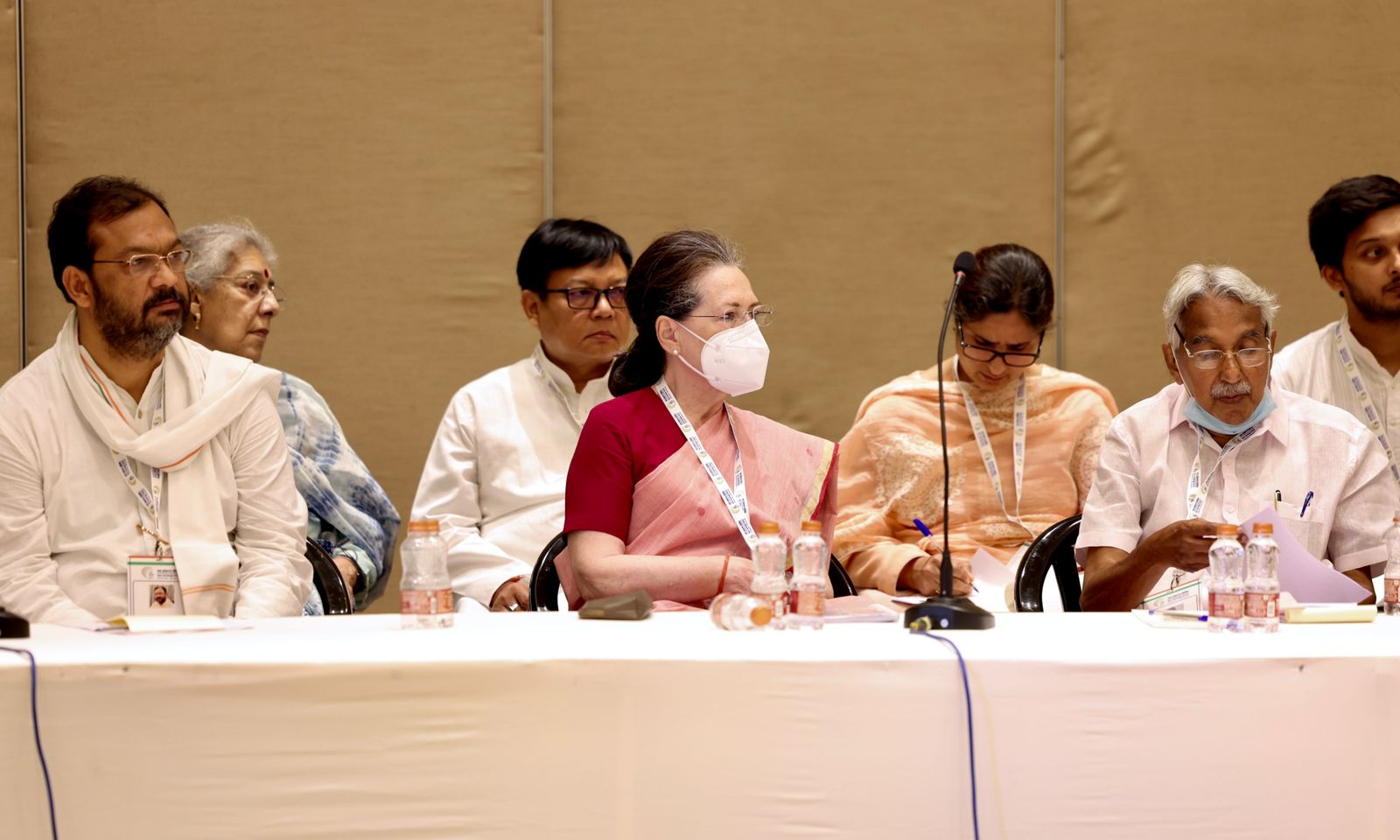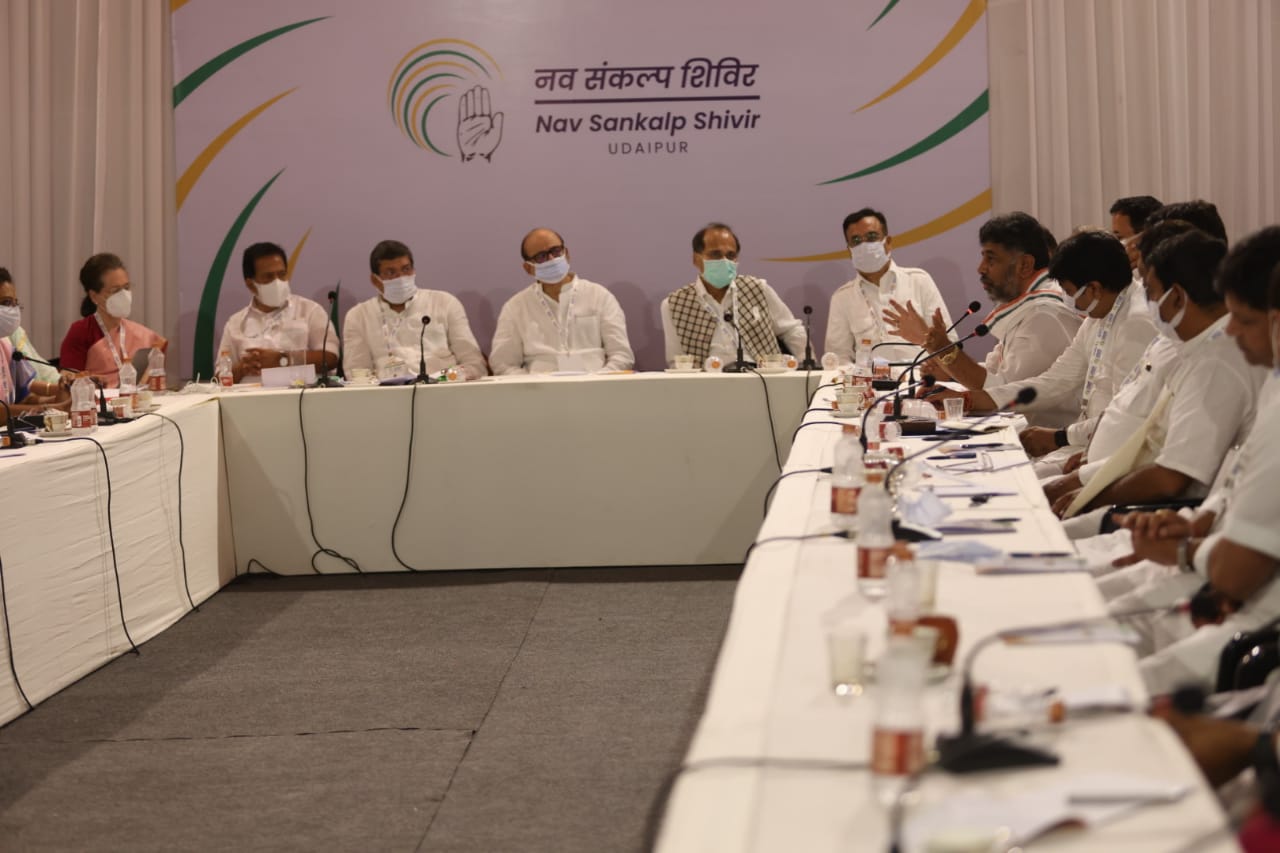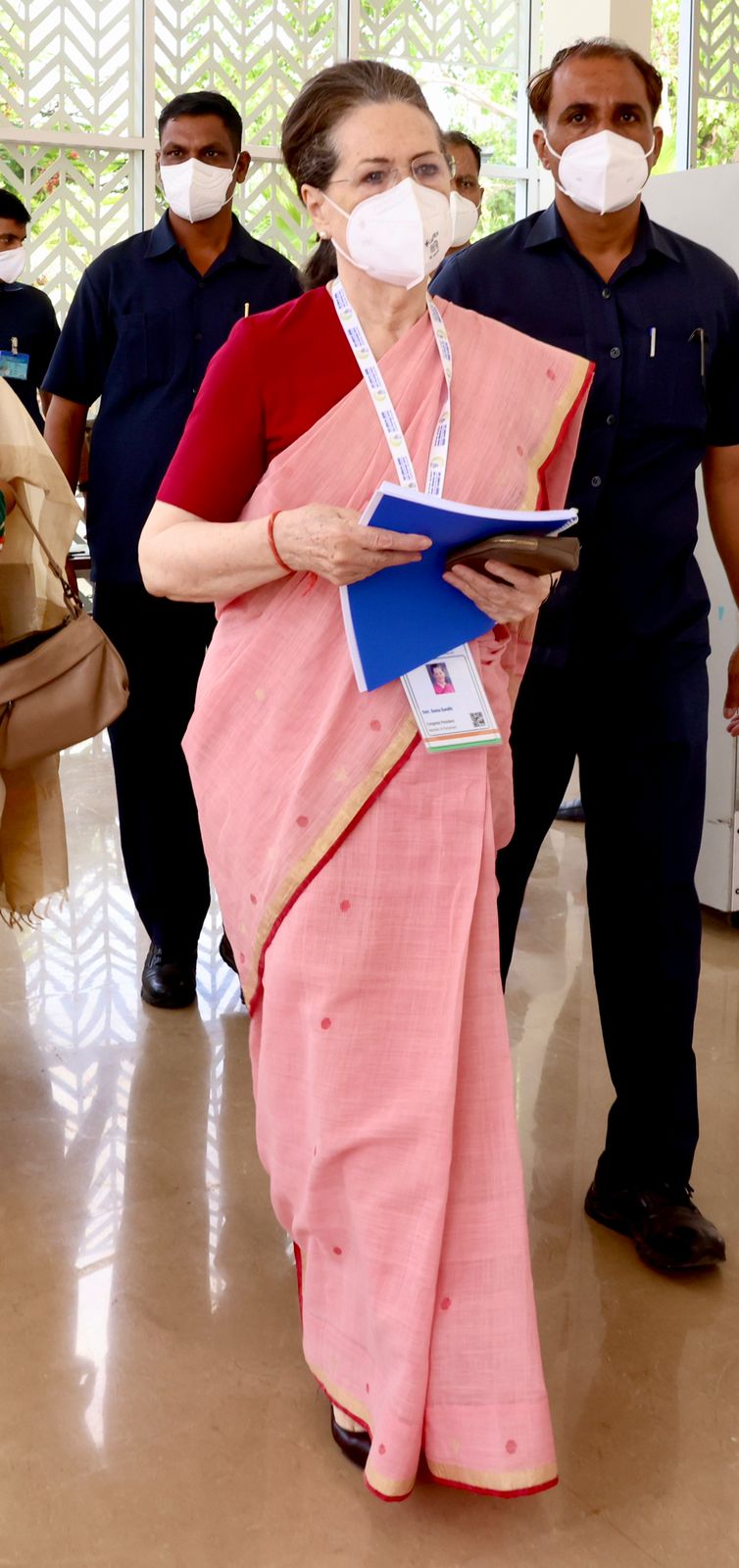Last Updated on May 14, 2022 2:50 am by INDIAN AWAAZ

ANDALIB AKHTER
The Congress’ brainstorming session termed as ‘Chintan Shivir’, began in Udaipur, Rajasthan on Friday with focus on the time-bound restructuring of the party, finding ways to combat the politics of polarisation and getting ready for upcoming electoral challenges.
Addressing the conclave Congress President Sonia Gandhi slammed the privatisation policy of the Narendra Modi-led National Democratic Alliance (NDA) government because it did not protect the employment rights of the Scheduled Castes and Tribes in state-owned enterprises, especially when the country was in the grip of high levels of unemployment, but made no comment on any reversal of this policy if the Congress came to power.

Mrs Gandhi said the Chintan Shivir had been tasked with discussing the challenges posed by the Narendra Modi dispensation. She conceded (amid applause) that the party badly needed reform. But the loudest applause was reserved for her observation that the party had “given each and every one of us a lot, and it was time to repay the debt”. She said Narendra Modi had claimed to bring about maximum governance but minimum government but what was happening was the opposite. Institutions had been dismantled and their autonomy eroded. The greatest threat was the flouting of secularism as a value. “Our eloquent prime minister remains silent when the healing touch is most needed,” she said.

The government is engaged in keeping “the country in a state of permanent polarisation, compelling our people to live in a constant state of fear and insecurity”, she said, adding there is “vicious targeting, victimising and often brutalising minorities who are an integral part of our society and are equal citizens of our republic”.
Gandhi linked economic performance to social policies and flagged the “disastrous demonetisation of November 2016. We must sustain high economic growth to provide adequate employment opportunities for our youth, generate revenues needed for welfare programmes and improve the standard of living of our people. But the worsening environment of social illiberalism and bigotry shakes the very foundations of economic growth”, adding, “whatever support the Central government has been able to provide in the past two years to people has been on account of at least two landmark initiatives of the Congress party — Mahatma Gandhi National Rural Employment Guarantee Act and the National Food Security Act”
Congress set for 1 family, 1 ticket rule
The Congress is likely to adopt the one family, one ticket rule with an exception to be allowed only if a second ticket aspirant from one family performs spectacularly well for the party.
The rule is likely to be adopted at the end of the Chintan Shivir which kicked off on Friday with the opening remarks by Congress President Sonia Gandhi.
The one family one ticket rule and the exception formula will apply across ranks including the Congress’s ruling Gandhi family.
Speaking ahead of the commencement of the Shivir, AICC general secretary in-charge of Rajasthan and member of the organisational matters for the conclave Ajay Maken said unanimity had nearly emerged on formalising the one party one ticket rule.
Three premises — on which groups constituted by the party will debate and adopt as part of the outcome of the meeting — were flagged by party leaders Ajay Maken and Mallikarjun Kharge: The adoption of a “one-family one ticket” rule but with significant exceptions; a three-year cooling-off period for all office-bearers of the All India Congress Committee (AICC) and Pradesh Congress Committees (PCCs) who have served for five years; and alliances with like-minded parties which are secular and believe in democratic values. Kharge said: “If we don’t have money, why would others come to us and invest in us?”
Maken said the “one family-one nomination rule” would not apply to those who have worked in the organisation for more than five years. And, if more than one member of a family has worked in the Congress organisation for more than five years, they would be exempt from this rule. Therefore, this rule does not apply to the Gandhi family.
This would also exclude those who join the party with the sole objective of securing a ticket, as happened in the Goa Assembly elections. In other words, the Congress is on the verge of deciding that defectors from other parties along with members of their families should not approach the Congress for nomination if they are disenchanted with their party, because they won’t be entertained. In many cases, the Congress has ignored the claim of workers of its own party for tickets, offering it to outsiders and members of the family.
Maken also announced: “We will give more space to leaders under 50 years of age but also take help of experienced leaders.” He announced that the Shivir would give time-bound goals for an organisational revamp, a matter of utmost importance. “For example, Mandal committees will be formed within two-three months.”
A working group on agriculture, headed by former Haryana chief minister Bhupinder Singh Hooda, has suggested a legal guarantee for minimum support prices (MSPs) of all crops and making it punishable for anyone buying crops below the fixed rate. The panel has also suggested that the MSP of crops be fixed in accordance with the “C-2 formula” of the Swaminathan committee.
It has also suggested that the Fasal Bima Yojna is not adequate for farmers and has called for setting import-import tariffs after consultation with farmers.
